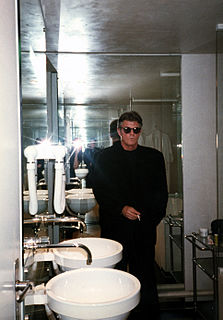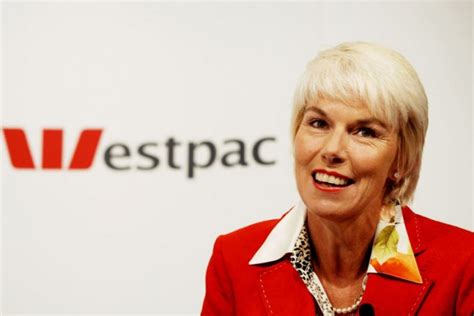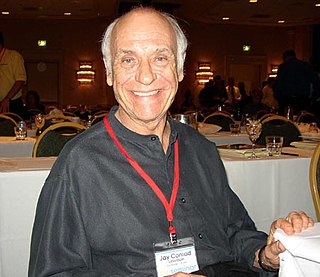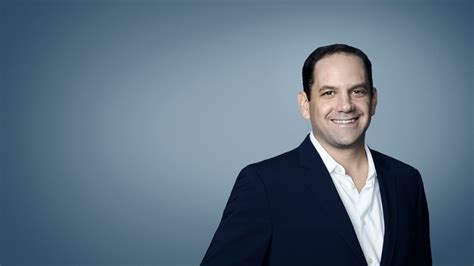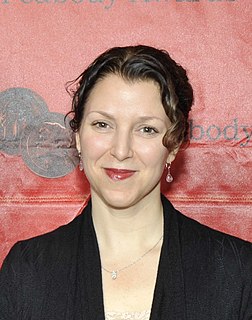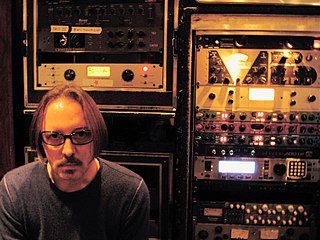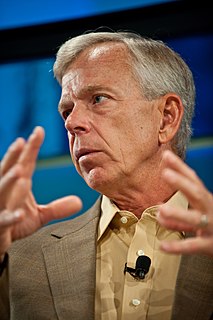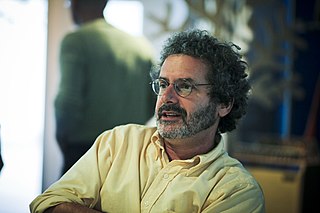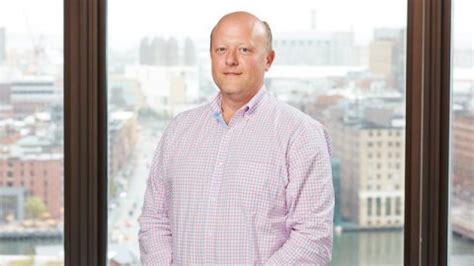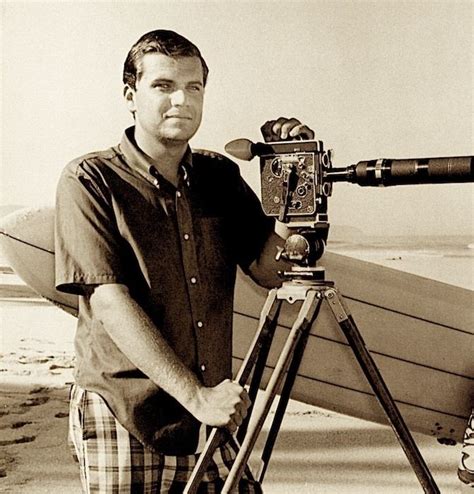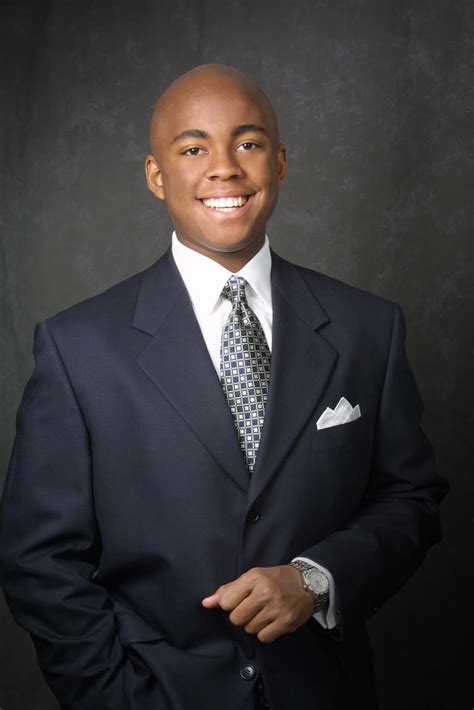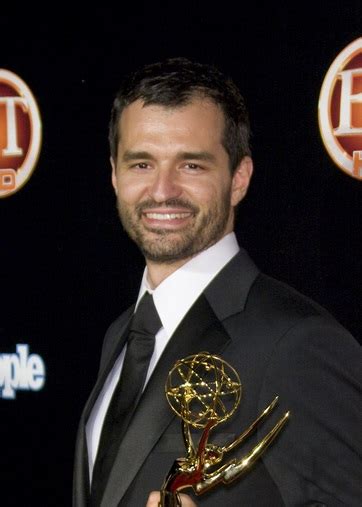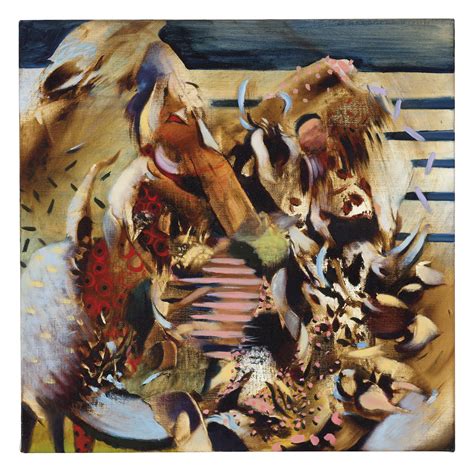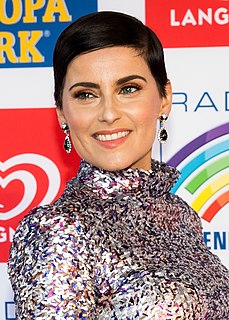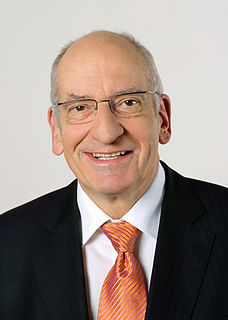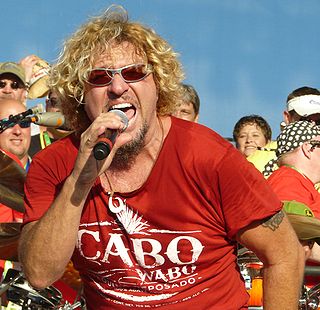Top 1200 Digital Marketing Quotes & Sayings - Page 5
Explore popular Digital Marketing quotes.
Last updated on December 12, 2024.
When it comes to fully understanding how to strategically move all the pieces on the marketing and distribution chess board on a worldwide basis, Jeff Blake is always thinking two moves ahead and that gives Sony a true competitive edge. He is the studio's secret weapon and while he would be the first to credit his fantastic sales and marketing team, there are few executives here that deserve more credit for our successes during the past several years than Jeff.
Digital technology, you see, is not the villain here. It simply offers another dimension. I'm not sure if it's a farther remove from reality than analogue. I think if we can speak of reality, if reality and representation can be spoken of in the same sentence, if reality even exists any more, digital is simply another way of encoding that reality.
Poetry of all the forms of literature I think is the most suited for the digital age and for the shorter attention spans and all of that. It Twitters very easily, some lyric poems and it's very easy to zip a poem to someone, so that's one of the things I think is wonderful about poetry in the digital age.
Marketing by interrupting people isn’t cost-effective anymore. You can’t afford to seek out people and send them unwanted marketing messages, in large groups, and hope that some will send you money. Instead, the future belongs to marketers who establish a foundation and process where interested people can market to each other. Ignite consumer networks and then get out of the way and let them talk.
In this digital age, there is no place to hide behind public relations people. This digital age requires leaders to be visible and authentic and to be able to communicate the decisions they've made and why they've made them, to be able to acknowledge when they've made a mistake and to move forward, to engage in the debate.
As somebody who's kind of a technophile, I'm interested in how traditional and digital publishing connect. Maybe ten years ago they were seen as antagonists, but now they complement each other. There's data that shows digital sales actually drive print sales. And even the ways in which pictures and words, text and image, interact - we're seeing these books that are very hard to categorize. All of that is very exciting to me.
Our digital experiences are out of body. This biases us toward depersonalised behaviour in an environment where one’s identity can be a liability. But the more anonymously we engage with others, the less we experience the human repercussions of what we say and do. By resisting the temptation to engage from the apparent safety of anonymity, we remain accountable and present - and are much more likely to bring our humanity with us into the digital realm
I work with digital audio, which is like sculpting, a form of chiseling down metal or wood. And I take audio and move it back and forth between the analog and digital realms and work with it almost like a plastic art until it takes forms in different shapes. And I use those figurines that come out of that type of work.
Various studios are still shooting on film with digital grain and the DI negatives, it's not ideal. We should really be all film or all digital. But that being said, the old way of graining in the camera, now you can make changes like a painter. It's dangerous because you can ruin the film, you can over-fiddle. We've all seen films and gone 'what the hell is that?'
When you view marketing from the vantage point of the guerrilla, you realize that it’s your opportunity to help your prospects and customers succeed. They want to succeed at earning more money, building their company, losing weight, attracting a mate, becoming more fit, or quitting smoking. You can help them. You can show them how to achieve their goal. Marketing is not about you. It’s about them. I hope you never forget that.
CNN is the only organization with both a 24/7 TV network AND a powerhouse digital product. Rachel Smolkin, executive editor of CNN Digital Politics, has put together a Murderer's Row of talent and the midterms are really their debut. When you combine that effort with the footprint we have in the field and the depth of talent and experience of our anchors, analysts and beat reporters, I don't think there is another organization on the planet that can cover elections the way CNN can.
The sheer novelty and glamor of the Western diet, with its seventeen thousand new food products every year and the marketing power - thirty-two billion dollars a year - used to sell us those products, has overwhelmed the force of tradition and left us where we now find ourselves: relying on science and journalism and government and marketing to help us decide what to eat.
The inherent non-linearity of the digital allows for more input from others, including the subject and reader as collaborators. The top-down, bedtime-style story is of limited use. A non-linear narrative that allows for increased complexity and depth, and encourages both subject and reader to have greater involvement, will eventually emerge more fully from the digital environment. This, in a sense, is the more profound democratization of media.
I love analogue tape and I love digital, they both have pluses and minuses and I don't really feel like I have to use one or the other. I love digital because it's really great for songwriting because you can just cut and move choruses around and pull chunks of songs. It's really easy to hear quickly "Oh, maybe the arrangement should be like this."
For me, digital is just another avenue. It doesn't mean that it has to be poor quality or poor content. But, you still run into the same struggles. You can't have full-on language, violence or sexual situations. You can't run rampant with the fact that it's digital. You can't do anything you want. You still have a responsibility to tell a story first, and show what the character is going through first, and then maybe you have a little bit of lee-way to show a more real side of life.
At Verizon, we've been strategically investing in emerging technology, including Verizon Digital Media Services and OTT, that taps into the market shift to digital content and advertising. AOL's advertising model aligns with this approach, and the advertising platform provides a key tool for us to develop future revenue streams.
Think about when a digital business marries up with what I'll call 'digital intelligence.' It is the dawn of a new era about being a 'cognitive' business. When every product, every service, how you run your company can actually have a piece that learns and thinks as part of it, you will be a cognitive business.
I don't think all films should necessarily look like they do on digital video. I think it cheats the audience, at some point. If you try to make an epic and you shoot it digitally, that doesn't make much sense. I think there's a certain kind of film that could be a "digital film." But it shouldn't be interchangeable with other films. It should be something more than just a capture medium. It should be a different form altogether, something new.
There's all these proofs that go on of identity, of records, and they're quite non-digital. The blockchain innovation really allows us to take everything where there's record keeping, everything where there's trust around record keeping, and it allows us to make that digital, immutable, permanent, and global.
The Encyclopedia Galactica defines a robot as a mechanical apparatus designed to do the work of a man. The marketing division of the Sirius Cybernetics Corporation defines a robot as "Your Plastic Pal Who's Fun to Be With. The Hitchhiker's Guide to the Galaxy defines the marketing devision of the Sirius Cybernetic Corporation as "a bunch of mindless jerks who'll be the first against the wall when the revolution comes.
We have many accommodation owners - people who own small hotels, villas and bungalows - and the digital economy has opened up a world of possibility for these business owners. Now, they can sell to and communicate with people around the world, and where Booking.com comes in is to help these accommodation owners adapt to the digital world.
Just in the past couple of years, there's been pushback against some of that marketing, as parents have gotten really upset. Now we're seeing Coke and Pepsi kind of shape-shifting. Instead of doing these very explicit marketing deals, they are getting into schools in much more hidden ways - things like My Coke Rewards, where they encourage schools to push their student body to purchase Coke products, in exchange for points that go toward various products for the school. It's a way for these companies to get in front of kids, presented as a form of charity.
There's something very satisfying about old cameras because they're ingenious. I mean when you take them apart and actually see, 'Oh, this is how we make photographs,' it's an ingenious thing, but it feels like it's in a way a layman can appreciate, whereas a digital camera, I don't even begin to know what goes into making a digital camera.
I wanted to be an industrial designer, so I went to business school for that, and I then went on to marketing at Interpublic Group of Companies, which was one of the first organizations to actually think about brand marketing. I worked on Coca Cola's account, and then I was recruited by Pepsi, and I ended up being Pepsi's first MBA. I was called the High Wire Act because I was in my 20s and I was given jobs of increasing responsibility that I was totally unqualified for.
My grandma used to make syrup for us because we couldn't afford it and I just played around with her recipe. I made strawberry syrup and that didn't really work out but I made strawberry-vanilla and that sold. Then I just went out and took marketing classes, went to seminars, learned about marketing a product and striking deals. It ended up taking orders of $1.5 million.
The whole switch from film to digital has changed some of the ways I use color and the juxtaposition of light and dark. It's getting better with digital, the separation's gotten better, but I still feel like it's really flatter than film, so I do a lot of screening and subtle textural printing and painting on clothes for film to get it not to look flat.
The reason to go public is that it is a massive branding, marketing, credibility, trust-building exercise with your customers, and then it allows you to consolidate power and scale and market share. Do we want to be a huge company with a huge impact? If the answer to that is yes, the only way that that happens is by going public. It is effectively a branding event that catalyzes interest. It helps with recruiting, it helps with marketing, it helps with sales. It just helps on many dimensions. I think it's basically a litmus test for the CEO's ambition.
I've always had a preference for digital, all the way. I grew up through video and camcorders, and I was part of the VHS generation. I made all my stuff in high school on video, and worked for public access. Staying in digital is a very familiar, very natural progression of the things that I've worked in before, and I always try to break as much new ground as I can.
My current project was shot on film, and because of that I've spent my entire day removing dust-specks from negatives. You wouldn't have to do that on digital because you don't get dust on the scanner. I say to myself, "Why am I doing this all day?" I could have just bought a digital camera and I wouldn't have to remove dust-specks ever again. But when you move closer to a film image, it has a real truth to it. And I really like that.
Being the recent accessibility of rare vinyl and cassette music via blogs, as well as the digital backlash which is driving more people to crave the tangible - most of these minimal wave releases are hand-numbered vinyl editions, which adds another level to the listening experience. They can listen to an LP and it's there for them to look at, examine its cover art, and hold whilst buying and downloading music in digital form remains such an ephemeral experience.
"Motherboard," for me, has four different levels: the bottom part is the water, vegetation, and growth. The second part is the world with figures and animals; there's chaos and civilization. The third part is the digital zone - these red things are turning into really loud digital sounds. Then the fourth level is like ether and things turning into air. This idea of how we're becoming partly digitalized is really interesting to me.
I'm always concerned about marketing or commercial philosophies. I can't feel good about having my name on a bottle of perfume that comes from a factory making perfume with all the same ingredients as every other perfume. I can't feel good about a factory overseas polluting the air for something with my name on it. I'm okay with music - because it's digital or a CD. My music is my emotion in a bottle. But how is a perfume supposed to reflect me? How is a sweatshirt supposed to represent me?
Print is still responsible for a significant portion of the revenues that, you know, pay for the work of the newsroom. But, you know, digital is very important. And part of the thrill of having this job now is I get to lead us through what is both a thrilling and very challenging transition from a print world to a digital world.
When I'm marketing a film, whether its mine or someone else's, I work with a great deal of strategy and elbow grease until the job is done. It's pretty simple really. I just dive in and start digging. Yes, I'm fortunate to know the in's and out's of a true studio-level marketing campaign. But really, anyone who is diligent and well-researched can pull it off too. Its easier for me, but it doesn't make it impossible for others.
I worry more about the marketing that's taken hold since the 70s. The Jazz era, the Swing era, those were huge. Entire decades were named for music. In the 1940s - after World War II - changes in taxation, ballrooms closing, people moving to the suburbs, and the onset of target marketing and the confusion of commerce with art caused some things to happen as a result that have taken us away from jazz and what jazz offers us.
If you look at the expenses of a great pharmaceutical company, they pay between about 10 to 15 percent of their expenses for research, but they use 30 to 40 percent of their incomes for marketing and promotion. It is not completely wrong that they spend so much, but it is not correct to say that there is a direct connection between the price of drugs and the cost of research. It could be more between the cost of marketing and the cost of the drugs.
Often in companies, you'll see tensions between sales and marketing. Sales people will want to give discounts to clients because they often get paid a commission based on how much they sell. So they're always pushing to give discounts because that will increase sales. Marketing, however, is judged by overall profitability.
It's a weird technique but it works. If you bake tapes at a certain temperature - I think it's 130 degrees - something happened to the magnetic particles, so you can restore them. The key is to do the transfer to digital while it's still warm. If it's done right, the new digital version will actually improve upon the quality of the original. If you do it wrong, though, the tapes will melt!
If you want to be a great American, you have got to understand Ben Franklin, Thomas Jefferson, George Washington, how the American Revolution happened. I think if you want to be a good citizen of the digital age, it helps to feel comfortable with both the people and the ways of thinking that created the digital revolution.
When I woke up from that dream, brother, I was like, "Okay, I've got to know what that was, what happened." That was not an average dream. I've had some dreams in my days, but not like that. It was way too vivid. Looking back, the reason that dream makes more sense today than it did then is, we are in a digital world. Back then, it was an analog world. Everything was digital in the dream.
History is littered with great firms that got killed by disruption. Of course, the personal computer, a technology that first took root as a toy, got Digital Equipment Corporation. Kodak missed the boat for a long time on digital imaging. Sony was slow to get MP3 technology. Microsoft doesn't know what to do with open source software. And so on.
There is this ferocious digital revolution coming along and we're in the teeth of that at the time of maximum economic disruption. There are huge opportunities there. I made the point in my supplementary statement that the Guardian is now a very considerable global player, but there are huge challenges in terms of making, of finding, the convincing business model, so I want to see Guardian journalism continue and thrive, although whether and to what extent that is in print or in digital is a sort of second order matter.



